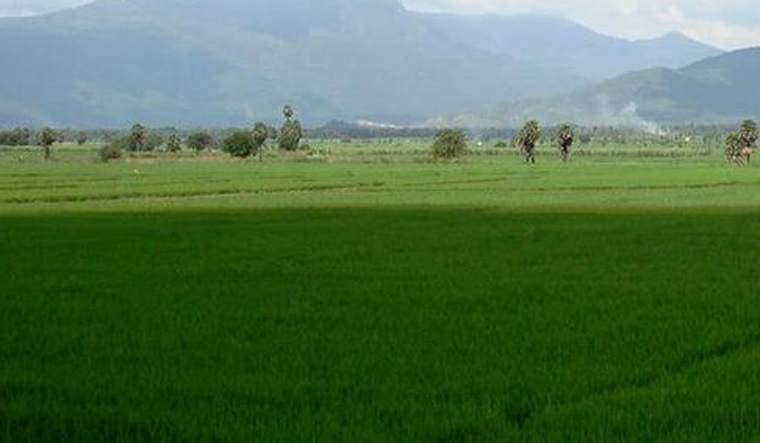It is a long drive from the busy Chennai streets to Morapakkam, a small hamlet overlooking the small town of Madhuranthakam in Tamil Nadu’s famous silk capital Kanchipuram. A deserted agriculture department's office welcomes anyone turning left into the small long lane off Maduranthakam on the Chennai-Trichy highway. The parched lands, small houses, cattle tied on to trees, and a few men seen chatting under a huge banyan tree, reveal the scene of a typical village, where agriculture has failed over the years. But as you go on, there is yet another group, sitting under a makeshift shed, discussing about paddy varieties and agriculture.
In a town known for silk, temples and the powerful Kanchi Sankara Mutt, agriculture had always taken a backseat. Otherwise a nondescript village, Morapakkam in Kancheepuram might soon overtake the silk and the political business in the temple town.
“We have come together to revive our traditional paddy varieties. Most varieties are natural and are indigenous. Most of these varieties are lost due to unscientific farming practices in Tamil Nadu. Once famous for paddy cultivation, Kanchipuram has lost its sheen in this regard,” says an agricultural expert, who has taken a new initiative to bring back the traditional seeds.
At a time when the farmers in Thanjavur and the Delta region have upped the ante in protesting against the Centre for betraying Tamil Nadu’s rights in Cauvery, farmers Kanchipuram, with Prabhu and ‘Nel’ Jayaraman—an expert who is a living seed bank for the farmers—have come together to revive the traditional paddy varieties.
Sample these. Kuzhiyadichhan, Mattaikkar, Sempalai, Kattiyanam, Mappillai Samba, Seeraga samba- these might sound new names for a lay man. But for farmers in the Kanchipuram region, these names sound a successful come back to agriculture business. “Ideal for making Idli and dosa, will anyone believe that this Mattaikkar variety of paddy is a drought tolerant?” asks Prabhu who took the initiative to bring together the farmers and launch a seed bank project. Green Cause Foundation, a non- governmental organisation with the only aim to bring back traditional paddy varieties, along with Bioversity International (a global research-for-development organisation) is working towards this. The seed bank, launched last year, distributed 13 varieties of traditional seeds. And now after a year, all the 200 farmers, who got the seeds from the bank, assembled at Morappakam, to share their experiences and return the seeds after the first season of yield.
With this, the hopes of bringing back the forgotten paddy varieties has increased. The experts, with the help of Green Cause Foundation and the farmers, have came together to launch three seed banks. Through these three banks, another 500 farmers from the district have been supplied with these traditional varieties. “It was challenging initially to convince farmers to cultivate traditional paddy seeds using organic materials. Now they have understood. In fact, during the flash floods in 2015, the paddy we sowed withstood the deluge. It was because of the traditional variety and the agriculture practice we followed in Morappakm,” says Prabhu.


